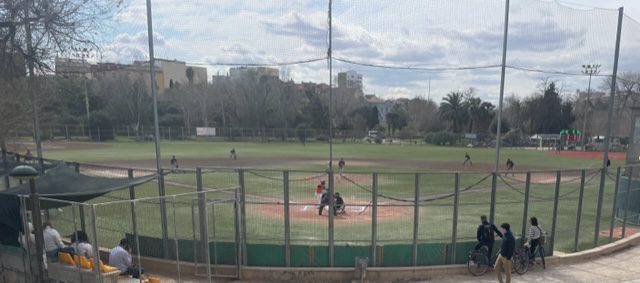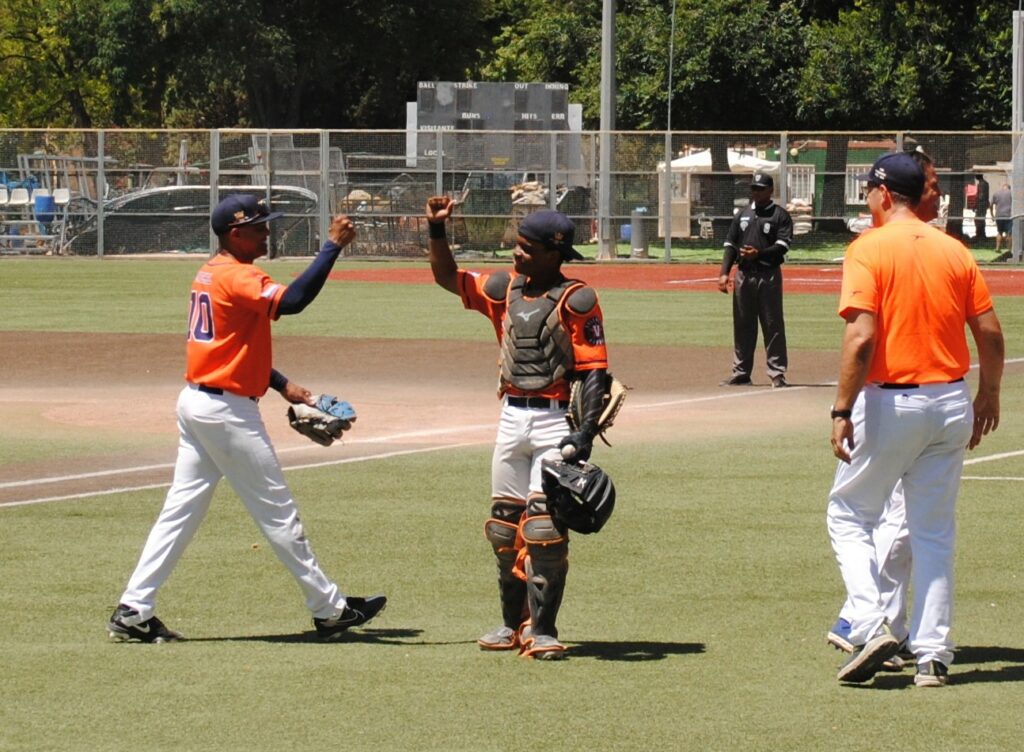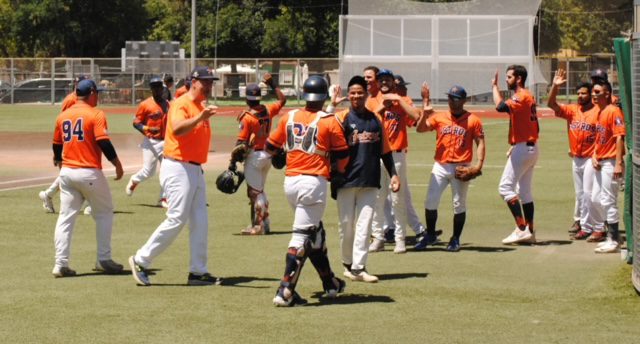More than 8,000 kilometres from Minute Maid Park, the Astros are kicking off their 2024 baseball season in Valencia. Kurt Aguilar knocks it out of the park…
More than 8,000 kilometres from Minute Maid Park, the Astros are kicking off their 2024 baseball season. No, not the Houston Astros of perennial playoff appearances, a 2017 cheating scandal and superstar Jose Altuve, who play their games in a stadium named for processed orange juice. The Valencia Astros toil on a shoestring budget in the land of fresh OJ. They aim, along with ten other top division teams that comprise the Spanish Baseball League, to grow the United States’ national pastime on the Iberian Peninsula.
For economic perspective, the Valencia Astros’ annual budget of 100,000€ is just a bit more than eight-time all-star Altuve makes in a day (about 80,000€ on his $30 million annual salary).The Astros opened their season on Saturday March 9 at the Municipal Baseball and Softball Field in the Turia Gardens near the 16th-century Serrano Bridge.
History of baseball in Spain
Baseball arrived in Spain at the dawn of the 20th century, brought by Caribbeans returning to their ancestral home in the wake of the Spanish-American War. The sport’s governing body in Spain, the Royal Spanish Baseball and Softball Federation, was born in 1944. Spain’s language and heritage served as the European gateway to Latin American players, leading to its baseball heyday in the middle of the century.
“That’s because baseball in the rest of Europe sucked” at that time, says Juan Garcia. He is the longtime head coach of the Valencia Astros, a Spaniard who grew up in Massachusetts and New Jersey. “It’s much better now than it was. ”An influx of interest and money in other countries, particularly Italy and the Netherlands, propelled those nations ahead later in the century. But, since the mid-1980s, the quality of play has improved steadily in Spain. Whereas fastballs for top pitchers in the league went about 85 mph in the 1990s, most current teams have at least one pitcher who can reach the mid-90s. And rosters are now dotted with many more foreign-born players with organised baseball experience than a generation ago.
In Valencia, baseball was still akin to sandlot ball – a makeshift basic form of baseball usually played in a field – when Garcia and about a dozen others founded the Astros in 2001. Today, the Astros are one of the country’s elite teams, regularly finishing near the top of the federation’s best division. The top division’s 30-game regular season runs from early March through July.
An overseas influence
Garcia and players who played professionally in the United States liken the quality of play to that of lower-level professional ball. “There are some talented players in the league,” says the Astros’ Tanner Donnels. Donnels was born in Houston when his father, Chris, played for those Astros. He played briefly in the minors before continuing his career in Europe. He played in Switzerland, Poland and Italy before landing in Valencia last season.
The Astros have a self-sustaining private youth baseball and softball academy with about 250 youngsters that serves as a feeder to the big club. The adult team’s finances are more tenuous. Funding comes mostly from state and local governments, along with small donations from friends and family. The organisation has been unsuccessful in attracting sponsors to date. But Garcia is optimistic that an expected new tax break will attract corporate money soon.



Making the most of the little they have
For now, though, every cent seems to count. The Astros travel to most road games by bus, with trips up to seven hours each way. Facilities at their palm-fringed home field, refurbished a decade ago, are bare bones. Players share bats, and scuff marks are not a reason for one of the two umpires on duty to replace a game ball. Garcia says they chose the name because they wanted one that sounded good in both English and Spanish.
But there is no affiliation with the American League team. “We tried to get in touch to see if they could help us out somehow, but they never reached back,” Garcia says. With the team’s small budget, players get a small stipend to coach young players in the academy. Most pay the bills through other jobs – from teacher to butcher to remote worker. Garcia, who played Little League and high-school baseball in the United States before moving to Spain in his teens and enjoying a long playing and coaching career, describes himself as the only coach of a top-division team to work for free.
A labour of love
“I wouldn’t feel comfortable” to take payment for coaching, says Garcia. He teaches English as a foreign language for a living. “I do it because I love the game and I want the game to progress.” About half the members of the current Astros – often kids who don’t like the much more popular soccer, are too small for basketball, come from Latin America or have a family connection to the game – came up through the academy. The academy’s pride and joy is Josue Solano, who turns 16 in April and will pitch for the big club this season. Garcia says Josue is being scouted by “a number of clubs.
Although excited to be on the top team, he admits being “a little nervous” at the prospect of going up against players who are often twice his age. Many of the others, including longtime Cuban league star Michel Rodriguez, who is 46 but still one of the best players in Spain, played organised ball in the Caribbean, in the minors or in college. Rodriguez had a lifetime .307 batting average during his 19 years in the Cuban league. Among his contemporaries before they achieved stardom in the United States were Aroldis Chapman. He became one of the top relief pitchers in the major leagues. Yoenis Cespedes won the Gold Glove as the best fielder at his position in the American League in 2015. He also won a Silver Slugger award as best hitter at his position in the National League the following season. And Jose Contreras, whose pitching propelled the Chicago White Sox to a World Series championship in 2005.
Here for the long-haul
Rodriguez “had the opportunity to defect to the US when I played in an international tournament as a teenager”. But he feared what might happen to his family in Cuba if he left. In retrospect, he regrets that decision, but says he is content in Spain. Donnels, 30, who lives in the Malvarrosa neighbourhood, says he enjoys the Spanish lifestyle. “I love tapas and being near the beach,” he said.His future is somewhat dependent on his fortunes on the diamond. “I’m kind of playing it season by season,” he says. Catcher Blake Ochoa, a Venezuelan who played seven years in the minors, is here for the long haul. After his minor-league career ended, he came to Spain in 2012. He played on the national team for many years before joining the Astros. He said it’s much safer in Spain than in Venezuela. The 38-year-old is here with his wife and three sons. He plans to spend the rest of his life in Spain.
“I’m going to stay here,” he says. “I’ll die here.”
- Follow the Astros on Instagram @www.instagram.com/astrosbeisbolvalencia/ or on Facebook at www.facebook.com/Beisbolvalencia